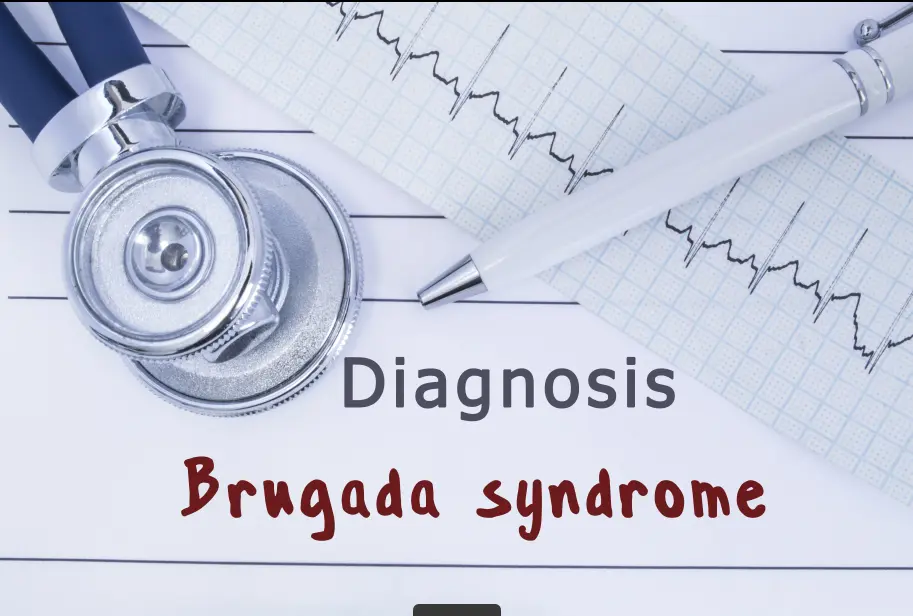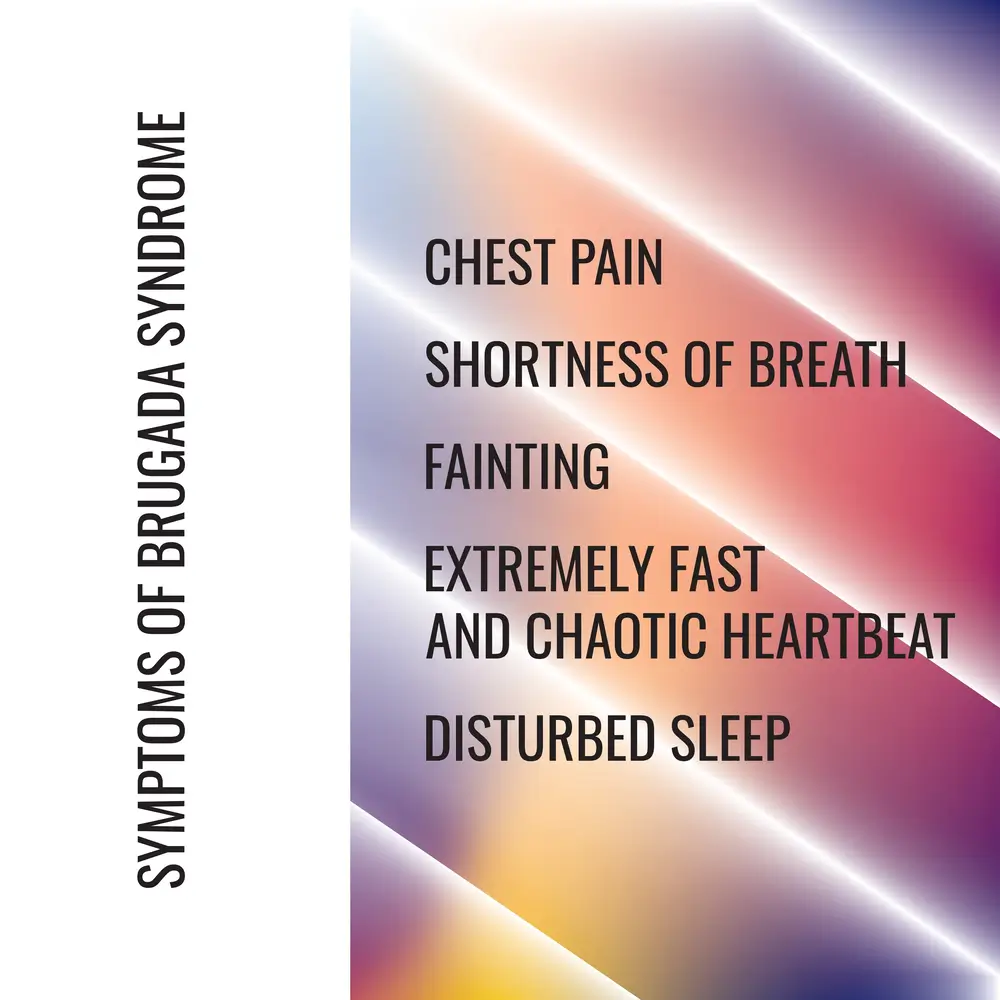Brugada Syndrome: Causes, Symptoms, Diagnosis, and Treatment


Brugada Syndrome is a rare but potentially life-threatening genetic condition that affects the heart's electrical system. While many individuals may live symptom-free for years, the first sign of the condition can sometimes be sudden cardiac arrest. This highlights the critical importance of awareness, early diagnosis, and specialised care. Our heart clinic is committed to providing patients and families with clear, compassionate, and medically sound information about heart conditions like Brugada Syndrome.
What is Brugada Syndrome?
Brugada Syndrome is a hereditary arrhythmia disorder that affects the ion channels responsible for the heart's electrical activity. It was first described in 1992 by Spanish cardiologists Pedro and Josep Brugada. The syndrome can cause abnormal electrocardiogram (ECG) findings and increase the risk of sudden cardiac death, especially in otherwise healthy individuals.
This condition often goes undiagnosed because it may not produce symptoms until a serious event like fainting or cardiac arrest occurs. Brugada Syndrome is more common in men and typically presents in adulthood, though it can also affect children.
Causes of Brugada Syndrome
Brugada Syndrome is primarily caused by genetic mutations affecting heart cells' sodium channels. The most commonly implicated gene is SCN5A, which provides instructions for making a protein essential for the normal flow of sodium ions in the heart.
Genetic Factors
- Autosomal dominant inheritance: One copy of the mutated gene from either parent can cause the condition.
- SCN5A mutations: Found in approximately 20-30% of diagnosed cases.
- Other genes may be involved, but are less well understood.
Environmental and Triggering Factors
- Fever
- Certain medications (e.g., antiarrhythmic drugs, antidepressants)
- Alcohol or recreational drug use
- Electrolyte imbalances (especially low potassium or sodium levels)
Who is at Risk?
- Individuals with a family history of Brugada Syndrome or sudden cardiac death.
- Men, particularly of Southeast Asian descent.
- People with unexplained fainting episodes or abnormal ECGs.
- Those who have survived cardiac arrest without a clear cause.
Risk Factor: The Cleveland Clinic notes that men are 8 to 10 times more likely than women to have Brugada syndrome.

Brugada Syndrome can be silent for years and suddenly present with severe cardiac events. Symptoms vary widely among individuals.
Common Symptoms
- Fainting (syncope), especially during rest or sleep.
- Seizure-like episodes.
- Irregular heartbeats (arrhythmias).
- Sudden cardiac arrest (often the first and only symptom).
- Palpitations or a fluttering sensation in the chest.
How Brugada Syndrome Affects the Heart
In Brugada Syndrome, mutations in sodium channel genes disrupt the normal flow of electrical signals in the heart. This electrical instability can lead to a specific ECG pattern, known as the Brugada ECG pattern, and predispose the heart to dangerous arrhythmias such as ventricular fibrillation.
Diagnosing Brugada Syndrome
Medical History and Physical Exam
A thorough family and personal history is essential. Any episodes of fainting, seizures, or a family history of sudden death should raise suspicion.
Electrocardiogram (ECG)
- A key tool in diagnosing Brugada Syndrome.
- Type 1 Brugada pattern: "Coved-type" ST-segment elevation in the right precordial leads (V1-V3).
- Type 2 and 3 patterns are considered suspicious and require further testing.
Drug Challenge Test
- Administered under controlled conditions with sodium channel blockers (e.g., ajmaline or flecainide).
- Helps unmask the Brugada ECG pattern in borderline or inconclusive cases.
Electrophysiological Study (EPS)
- An invasive test to assess the heart’s electrical activity.
- It may help stratify the risk of sudden cardiac arrest.
Genetic Testing
- Identifies mutations in the SCN5A or other associated genes.
- Useful for screening family members, but not always conclusive.
Treatment Options for Brugada Syndrome
There is no cure for Brugada Syndrome, but it can be effectively managed to reduce the risk of life-threatening arrhythmias.
Lifestyle Modifications
- Avoid medications known to provoke arrhythmias (see brugadadrugs.org).
- Prompt treatment of fever with antipyretics.
- Avoid excessive alcohol consumption.
- Maintain proper hydration and electrolyte balance.
Medications
- Quinidine: Can help stabilise the heart's electrical activity in high-risk patients.
- Not all patients require medication; drug therapy is typically reserved for specific high-risk cases.
Implantable Cardioverter Defibrillator (ICD)
- The most effective treatment for preventing sudden cardiac death in patients at high risk.
- Recommended for:
- Patients with a history of cardiac arrest
- Those with syncope and a spontaneous type 1 ECG pattern
- Patients with inducible arrhythmias during EPS (in select cases)
Radiofrequency Catheter Ablation
- A newer option for patients with recurrent arrhythmic events or electrical storms.
- Target areas in the right ventricular outflow tract where arrhythmias originate.
Living with Brugada Syndrome
Ongoing Monitoring
- Regular ECGs and follow-up with an electrophysiologist.
- Remote ICD monitoring, if applicable.
- Routine blood tests to check electrolytes and medication levels.
Emotional and Psychological Support
- Anxiety about sudden cardiac death is common.
- Counselling and support groups can be beneficial for patients and families.
Family Screening and Genetic Counselling
- First-degree relatives should be screened with an ECG and potentially genetic testing.
- Genetic counselling is recommended for affected families.
Brugada Syndrome in Children
Though rare, Brugada Syndrome can present in infants and children. Warning signs include:
- Unexplained fainting or seizures.
- A family history of sudden death.
- Febrile seizures that trigger abnormal heart rhythms.
Pediatric care for Brugada Syndrome requires specialised expertise; many treatment principles are similar to adult care.
Pediatric Detail: Great Ormond Street Hospital explains that Brugada syndrome in children is an inherited condition caused by a change in a person's DNA that affects how electrical impulses pass through the heart.
Brugada Syndrome and Sudden Cardiac Death
Brugada Syndrome is a leading cause of sudden cardiac death in individuals under 40 years of age, especially during sleep. Early diagnosis and appropriate intervention are crucial to reducing the risk.
Statistic: NORD reports that Brugada syndrome could be responsible for up to 20% of sudden death in patients with structurally normal hearts.
Recent Advances in Research
Gene Therapy and Precision Medicine
- Emerging therapies aim to correct the underlying genetic defects.
- Ongoing research is exploring tailored treatments based on specific gene mutations.
Advanced Imaging and Mapping
- 3D electroanatomical mapping enhances the precision of catheter ablation.
- Helps identify areas of arrhythmic substrate in the heart.
Wearable Technology
- Smart ECG monitors and defibrillators are being tested for early detection and real-time intervention.
Expert Guidelines and Recommendations
The Heart Rhythm Society (HRS) and the European Society of Cardiology (ESC) provide the following guidelines:
- ICD implantation for symptomatic patients and survivors of cardiac arrest.
- Risk stratification with EPS for intermediate-risk patients.
- Avoidance of arrhythmia-triggering drugs and management of fever.
Conclusion
While rare, Brugada Syndrome poses significant risks if left undiagnosed or untreated. The condition requires a proactive, multidisciplinary approach to ensure safety and quality of life. Our heart clinic is dedicated to delivering expert diagnostics, advanced treatments, and compassionate care for patients with Brugada Syndrome. Whether you're seeking an evaluation, a second opinion, or long-term management, our expert cardiologists are here to support you.
If you or a loved one is concerned about Brugada Syndrome, don’t wait. Schedule a consultation today to take control of your heart health.
This write-up has been medically reviewed by Dr. Michael Ross MacDonald, a consultant cardiologist at The Harley Street Heart & Vascular Centre in Singapore, to ensure the accuracy and reliability of the information provided.


